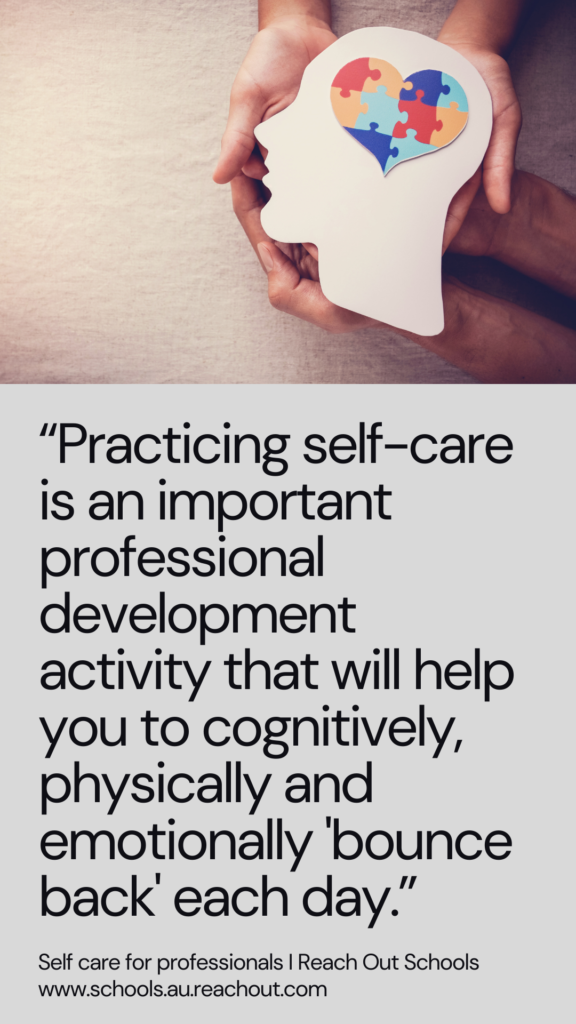What does ‘self-care’ mean when working in early years practice and why does self-care matter in professional work?
Self-care for professionals is about actively looking after your own mental health and wellbeing so that you can more effectively support the babies and children that you work with. The concept of self-care is similar to the safety procedures on an aircraft:
In the unlikely event of an emergency, fit your own oxygen mask first, before attending to children or dependents.
Why practice self-care?
Supporting the development of young children can be challenging. The current funding pressures result in needing to ‘do more with less’, and to work within uncertain and restrictive contexts. Working with infants who might need a lot of support can test our patience and push us to our limits.
Practicing self-care is an important professional development activity that will help you to cognitively, physically and emotionally ‘bounce back’ each day over the long term.

The Early Years Alliance has published a new report shining a light on the mental health and wellbeing of the early years workforce.
Read the full Minds Still Matter report below:

Read: Minds Still Matter
<undefined>Early Years Alliance I November 2023</undefined>
Minds Still Matter provides a comprehensive analysis of the results of an Alliance survey of early educators, conducted earlier this year, which found that:
- More that eight in ten (81%) were regularly stressed about a work-related issue during the month prior to the survey, with Ofsted inspections, sector-specific government policy and pay listed as the most common causes.
- Over three-quarters (77%) support the removal of the single-word Ofsted grading
- In the past yearm around two-thirds (67%) suffered with anxiety, fatigue (65%) and loss of motivation (64%)
- A third (35%) are considering leaving the sector due to stress and mental health difficulties
The good news is that it isn’t just our responsibility to take care of ourselves. Organisations must reflect on what it means to create a mentally healthy workforce and how to respond to the mental health and wellbeing challenges of staff.






